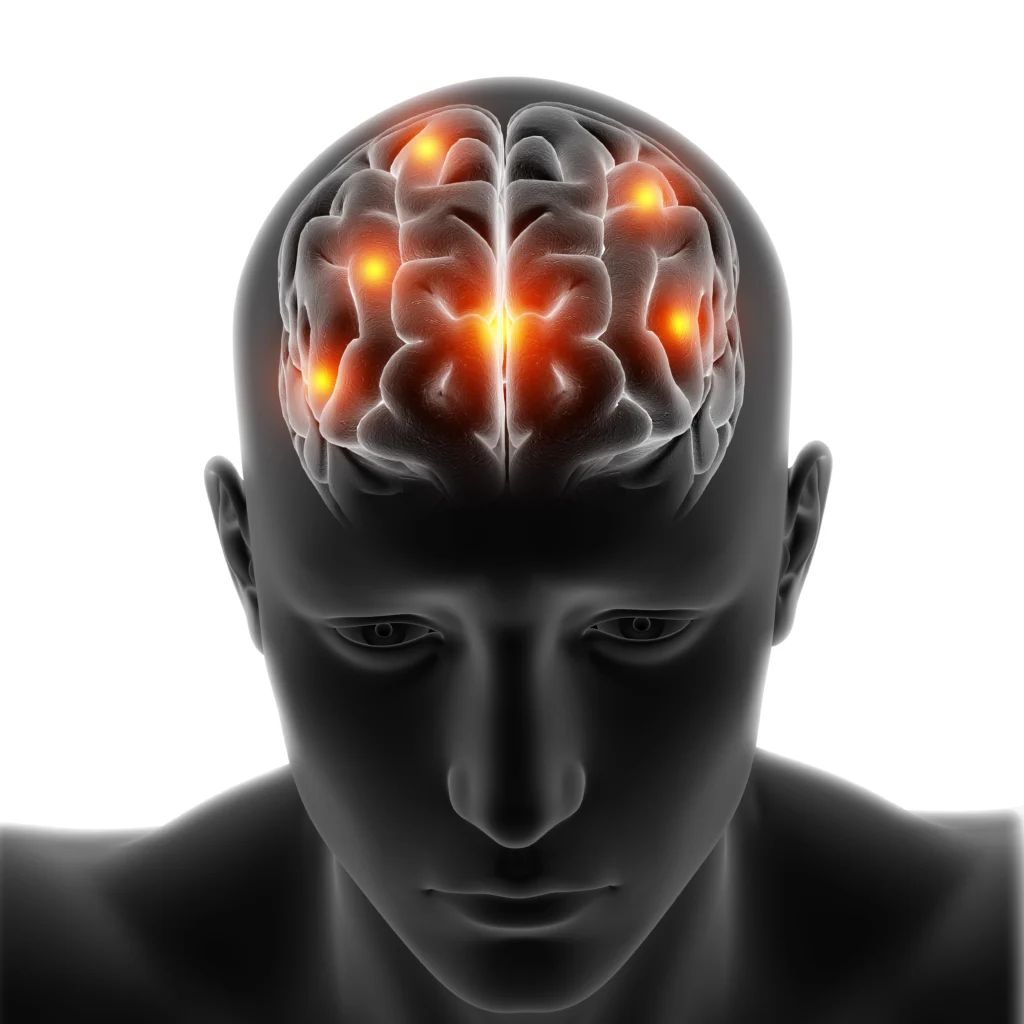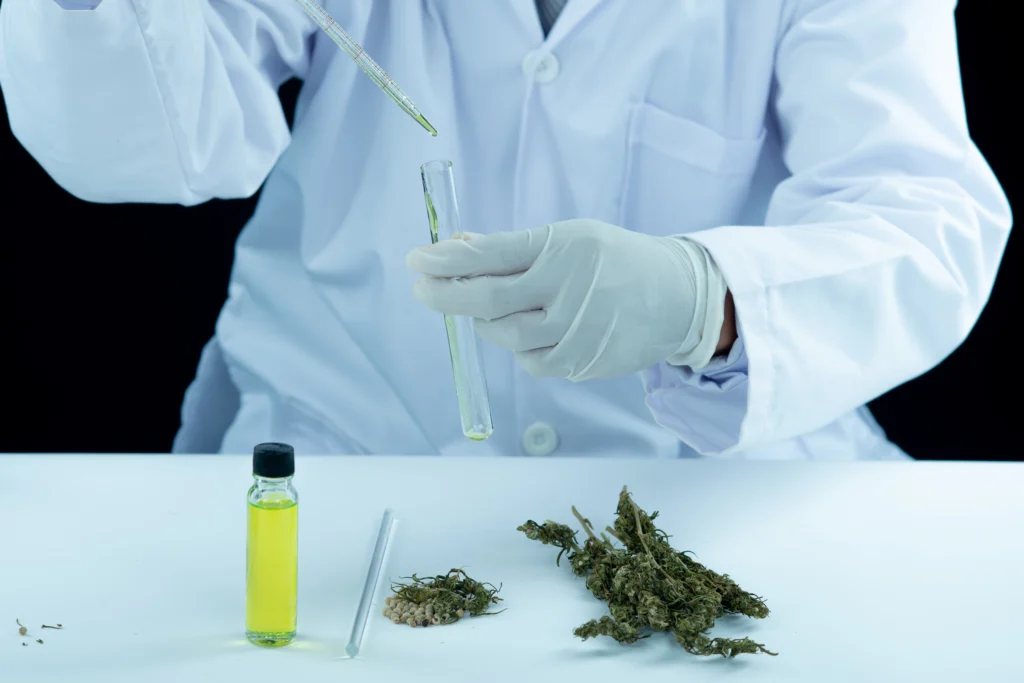Post-Traumatic Stress Disorder
Get Your Card NowPost-Traumatic Stress Disorder (PTSD) and Medical Marijuana: A Scientific and Practical Approach
Understanding PTSD: A Persistent Mental Health Challenge
Post-Traumatic Stress Disorder (PTSD) is a severe mental health condition triggered by experiencing or witnessing a traumatic event. It profoundly impacts individuals’ daily lives, relationships, and overall well-being. PTSD can develop following various incidents, including:
Combat exposure: Military personnel frequently face life-threatening situations that contribute to PTSD
Physical or sexual assault: Survivors of violence may develop long-term psychological distress.
Natural disasters: Experiencing hurricanes, earthquakes, or floods can cause lingering trauma.
Serious accidents: Near-fatal car crashes and other accidents can trigger PTSD symptoms.
Sudden and severe loss: The unexpected death of a loved one often leads to emotional turmoil.
First responders’ trauma: Police officers, firefighters, and emergency medical personnel are routinely exposed to distressing situations.


Symptoms of PTSD: How It Manifests
PTSD symptoms fall into four broad categories:
1. Re-Experiencing Symptoms: Flashbacks, nightmares, and intrusive thoughts bring the trauma back to life.
2. Avoidance Symptoms: Individuals may avoid people, places, or conversations that remind them of the traumatic event.
3. Arousal and Reactivity Symptoms: Heightened alertness, irritability, and difficulty sleeping are common signs.
4. Cognition and Mood Symptoms: Negative thoughts, depression, memory issues, and feelings of guilt often accompany PTSD.
Traditional PTSD Treatments: Strengths and Limitations
Conventional PTSD treatments include therapy and medication.
Cognitive Behavioral Therapy (CBT): Helps individuals reframe negative thoughts and behaviors.
Exposure Therapy: Gradually desensitizes individuals to traumatic memories.
Selective Serotonin Reuptake Inhibitors (SSRIs): Medications like sertraline and paroxetine help alleviate symptoms.
Benzodiazepines: Used for anxiety but come with a risk of dependency and side effects.
Despite these options, many individuals continue to experience debilitating symptoms, leading them to seek alternative treatments like medical cannabis.


The Role of Medical Marijuana in PTSD Treatment
Medical cannabis has gained recognition as a potential treatment for PTSD, offering relief through its interaction with the endocannabinoid system (ECS). The ECS plays a crucial role in regulating mood, stress, and memory.
How Medical Cannabis Helps with PTSD
Reduces Anxiety and Hyperarousal: THC and CBD help regulate stress responses, reducing panic attacks and hypervigilance.
Improves Sleep Quality: Cannabis alleviates insomnia and nightmares, common PTSD symptoms.
Eases Recurrent Flashbacks: THC has been shown to disrupt the retrieval of traumatic memories, decreasing their emotional impact.
Enhances Emotional Regulation: Cannabinoids balance neurotransmitter levels, reducing mood swings and depressive symptoms.
Minimizes Dependency on Pharmaceuticals: Many PTSD sufferers seek cannabis as a natural alternative to habit-forming medications.
Scientific Evidence Supporting Medical Cannabis for PTSD
Numerous studies have explored the efficacy of cannabis in treating PTSD:
A 2014 Israeli study found that cannabis significantly reduced PTSD symptoms among war veterans.
A 2019 study published in the Journal of Psychopharmacology indicated that cannabis users reported a 50% reduction in PTSD symptoms, particularly in sleep disturbances and intrusive thoughts.
A 2021 study in the Journal of Affective Disorders suggested that cannabis could lower PTSD-related anxiety levels by up to 75% immediately after consumption.

Key Cannabinoids in PTSD Treatment
Tetrahydrocannabinol (THC): Alters fear memory processing, reducing flashbacks and nightmares.
Cannabidiol (CBD): Has anti-anxiety properties, helping to manage stress and panic attacks.
Cannabigerol (CBG): Emerging research suggests it may enhance relaxation and neuroprotection.
CALL US NOWBest Methods of Cannabis Consumption for PTSD
Smoking/Vaping: Provides immediate relief but may not be ideal for lung health.
Edibles: Offer long-lasting effects but have a delayed onset.
Tinctures: Allow precise dosing with sublingual administration.
Capsules and Pills: Provide a controlled, consistent dosage.
Topicals: While less common for PTSD, they can alleviate stress-induced physical symptoms.
Risks and Considerations
While medical cannabis shows promise, it’s not without risks:
Potential for Dependency: Some users may develop a reliance on cannabis.
Cognitive Impairment: High THC doses can affect memory and concentration.
Legal Restrictions: Cannabis laws vary by state and country, requiring proper authorization.
Psychiatric Effects: In individuals predisposed to mental health disorders, cannabis may exacerbate symptoms.
Obtaining Medical Cannabis for PTSD
To qualify for a medical marijuana card:
1. Consult a Licensed Provider: A doctor must confirm your PTSD diagnosis.
2. Receive a Medical Recommendation: Physicians determine dosage and strain suitability.
3. Register with State Programs: Regulations vary by jurisdiction.
4. Purchase from Licensed Dispensaries: Ensure access to high-quality, lab-tested products.
Conclusion: A New Frontier in PTSD Treatment
Medical cannabis presents a promising alternative for individuals with PTSD, particularly those for whom traditional treatments have failed. By targeting the neurological pathways involved in trauma response, cannabis offers a multifaceted approach to symptom management. However, it is crucial to use it responsibly, under medical supervision, to maximize benefits while minimizing risks. As research continues, medical marijuana may become a mainstream component of PTSD therapy, providing relief and improving the quality of life for countless individuals.
Get A Same Day Medical Card For PTSD
Consult with us in person or through a telemedicine appointment. The State of Illinois now allows for medical cannabis consultations to be conducted via telemedicine. Get an Illinois Medical Cannabis Card application completed in just one visit! Simply call today at (773) 707-6020 and in most cases the doctor will conduct the phone consult immediately so that you can get your provisional card within 12-24 hours.